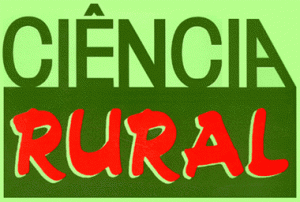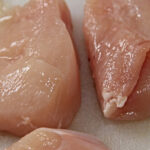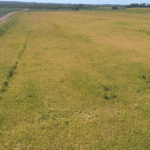Maria Luiza De Grandi, journalist from Ciência Rural, Santa Maria RS, Brazil.
Fábio Miranda, research of Embrapa Agroindústria Tropical. Fortaleza, Ceará, Brasil.
 Coconut is one of the main crops in the Northeast Region of Brazil, having yielded approximately 1,155 million fruits in 2017. Coconut water has numerous benefits, including body hydration, electrolyte replacement and cramp relief. The Brazilian Northeast has experienced a significant reduction in the availability of water for irrigation, as a result of several years of drought in a row.
Coconut is one of the main crops in the Northeast Region of Brazil, having yielded approximately 1,155 million fruits in 2017. Coconut water has numerous benefits, including body hydration, electrolyte replacement and cramp relief. The Brazilian Northeast has experienced a significant reduction in the availability of water for irrigation, as a result of several years of drought in a row.
An alternative that can be used to increase water use efficiency in coconut tree irrigation is sustained deficit irrigation (SDI), where irrigation is reduced throughout the crop cycle. Researchers from Embrapa Agroindústria Tropical, in partnership with the Federal University of Ceará (UFC), evaluated the effects of sustained deficit irrigation (SDI) on the production and water quality of fruits of the Anão Verde coconut tree.
The article Effect of irrigation with sustained water deficit on productivity and water quality of green dwarf coconut fruits was published in Ciência Rural (vol. 52, nº 11). The experiment was carried out in a commercial orchard located in Camocim, Ceará, Brazil. The plants, which were four years old at the time, were irrigated by microsprinkler for 29 months with different irrigation depths. The fruits were harvested monthly, six months after the opening of the inflorescences and evaluated for the number of fruits per plant, volume of coconut water per fruit and total soluble solids of coconut water.
The results showed that the use of irrigation with sustained water deficit, in which a water level lower than the crop’s potential evapotranspiration is applied, reduced fruit productivity, fruit water volume and coconut water productivity per plant in in relation to full irrigation, in which the water needs of the crop are completely replaced.
On the other hand, deficit irrigation increased the total soluble solids content of coconut water and the efficiency of irrigation water use, in terms of the number of fruits and the volume of coconut water produced per cubic meter of water used in the irrigation. irrigation. “Given the results, deficit irrigation was not economically advantageous compared to full irrigation, due to the small reduction in production costs compared to the substantial reduction in gross income, when the coconut tree is irrigated with deficit”, explains the researcher Fabio Rodrigues de Miranda.
The research showed that, unlike several irrigated fruit trees, deficit irrigation significantly reduces the productivity of dwarf coconut trees and is only economically justified in situations of restriction of water supply for irrigation. “Producers and technicians who work with the crop can use the research results for decision-making in the management of irrigation for green dwarf coconut palms, regarding the amount of water to be applied in situations of restriction of water supply for irrigation”, concludes Miranda.
Read more
MOREIRA, C.G., et al. Efeito da irrigação com déficit sustentado e secagem parcial do sistema radicular em coqueiro-anão. Fortaleza: Embrapa Agroindústria Tropical, 2022 [viewed 18 April 2023]. Available from: http://www.infoteca.cnptia.embrapa.br/infoteca/handle/doc/1145483
To read the article, access
ARAÚJO, B.A. Sustained deficit irrigation on yield and fruit water quality of dwarf green coconut. Cienc. Rural [online]. 2022, vol. 52, no. 11, e20200674 [viewed 18 April 2023]. https://doi.org/10.1590/0103-8478cr20200674. Available from: https://www.scielo.br/j/cr/a/XdYQTrNcs768mpxPMgvfPQB/
External links
Ciência Rural – CR: https://www.scielo.br/cr/
Ciência Rural – website: http://coral.ufsm.br/ccr/cienciarural/
Social media: Twitter | Facebook | Instagram
Como citar este post [ISO 690/2010]:



















Recent Comments